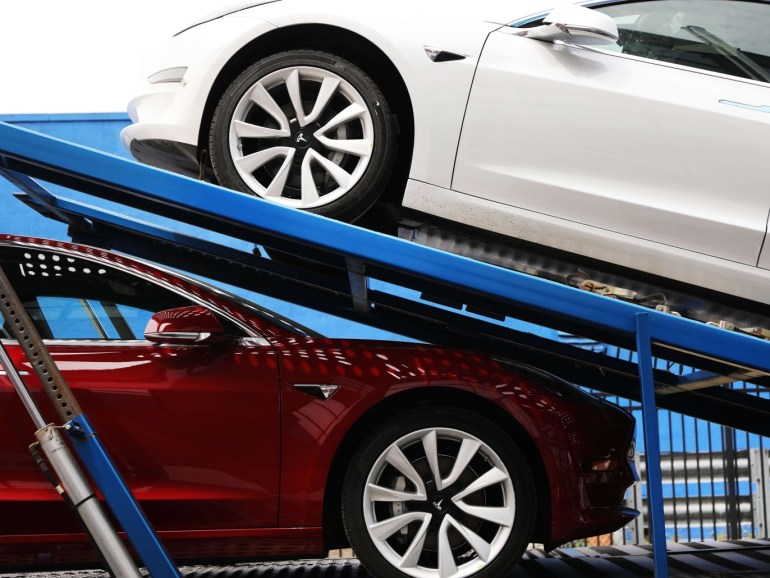Electric car maker Tesla reported its first full-year net profit in 2020, but the little secret that not everyone knows is that this income is not from car sales to its customers.
Most of this income comes from selling credits to other companies, as 11 US states require car makers to sell a certain percentage of zero-emission cars by 2025, and if they can't, then auto makers must buy regulatory credits from another car company that meets these requirements such as Tesla, which exclusively sells electric cars.
It's a lucrative business for Tesla, having brought in $ 3.3 billion over the past five years, nearly half of that in 2020 alone.
The $ 1.6 billion regulatory appropriations received last year exceeded Tesla's net profit of $ 721 million, meaning Tesla would have had losses in 2020 had it not been for the regulatory appropriations.
"They are losing money selling cars. They are making money selling credits. These credits will run out at some point," said Gordon Johnson of GLJ Research.
Senior Tesla executives acknowledge that the company cannot count on the continuation of this source of cash. “This is always an area that is difficult for us to anticipate .. In the long term, regulatory credit sales will not be part of the income, and we are not planning for that. . It is likely that these sales will remain strong in the coming years, and it is also possible that they are not. "
The 11 states that require a certain percentage of cars to be emissions-free and are urging car companies to buy credits from companies like Tesla are California, Colorado, Connecticut, Maine, Maryland, Massachusetts, New York, New Jersey, Oregon, Rhode Island and Vermont.
Supporters of the measures say they show that Tesla is finally making money after years of losses.
This profitability is one of the reasons the stock has performed well for over a year.
But the debate among skeptics and fans of the company over whether Tesla is really profitable has become a "war", according to Jane Munster, managing partner at Loup Ventures and a leading technical analyst.
"They are discussing two different things. They will not reach a solution," he said.
Monster believes that critics focus too much on how credits still exceed net income.
He asserts that the automobile gross margin, excluding sales of regulatory credits, is the best measure of a company's financial success.
Monster considers it a "key indicator", which is why he believes that with regulatory appropriations in the measure of Tesla's earnings, "there is no opportunity for GM and Volkswagen to make more than just selling their electric cars."
Half a million Tesla cars sold in 2020 (French)
Tesla's future
Tesla's stock performance, which rose by 743% in 2020, makes it one of the most valuable American companies in the world after it was trying to obtain financing from abroad.
However, half a million cars sold in 2020 is a fraction of the more than 70 million cars sold worldwide.
Yet Tesla's shares are now worth nearly a dozen of the largest automakers that sell more than 90 percent of the cars globally.
What Tesla has that other automakers do not have is rapid growth. Last week it predicted annual sales growth of 50% in the coming years, and expects to perform better in 2021 as other automakers struggle to return to pre-pandemic sales levels. .
The entire industry is heading towards an all-electric future to meet the world's most stringent environmental regulations and satisfy the growing appetite for electric cars, in part because they require less labor, fewer parts and less construction cost than conventional gasoline-powered cars.

